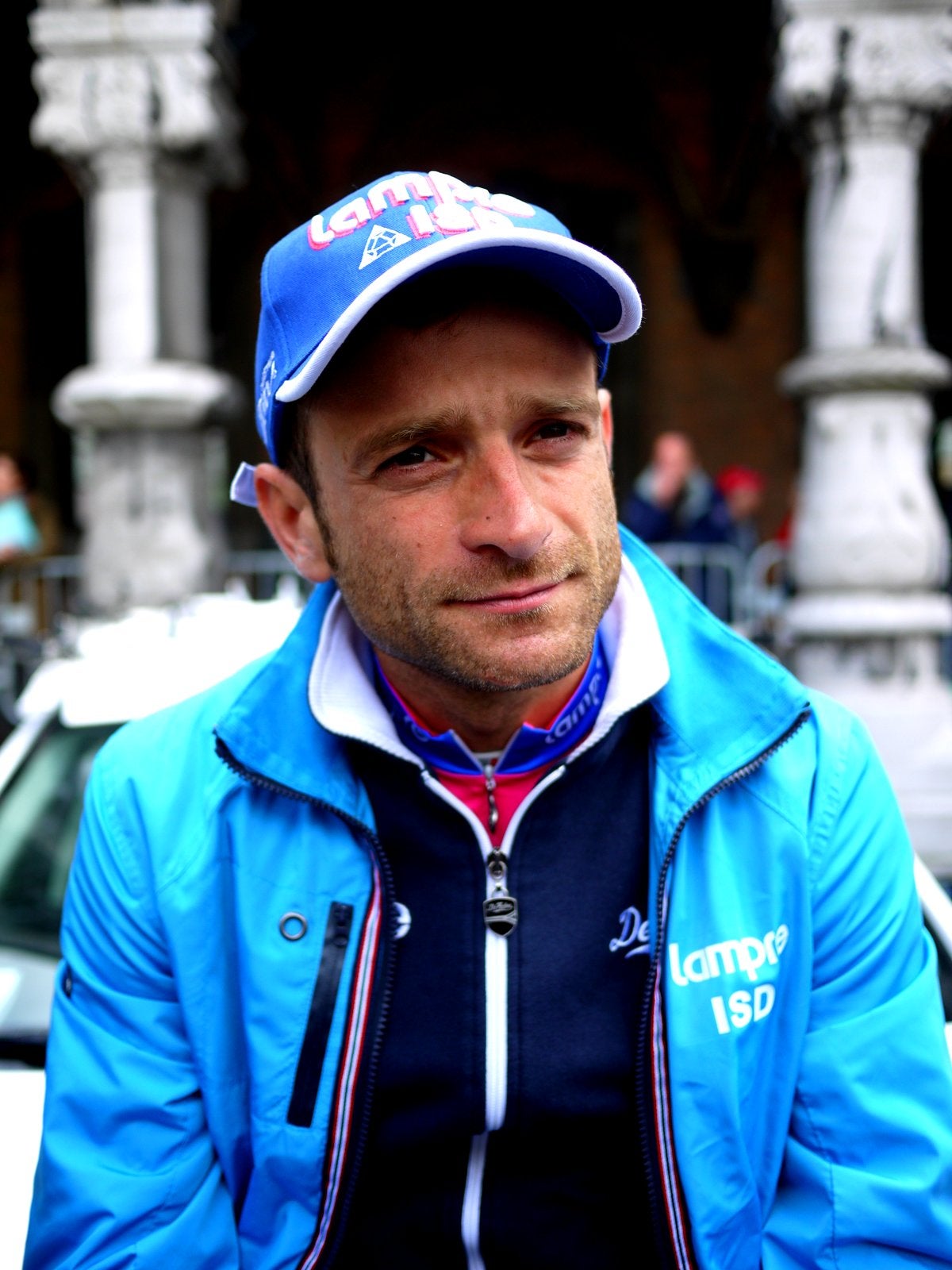With Armstrong case closed, UCI awaits Padua investigation

Michele Scarponi is one of a number of riders under fire for ties to Michele Ferrari. Photo: Gregor Brown | VeloNews.com
MILAN (VN) — The UCI signed off on the Lance Armstrong doping case on Monday, but sees a new one brewing on the horizon in Italy.
“I can’t be confident. I’m not going to turn around and say that this will definitely change things and we are on a good line,” UCI president Pat McQuaid said of the Armstrong case. “We’ve got Padua coming up too, and goodness knows what’s in that.”
McQuaid announced the UCI’s decision to uphold the U.S. Anti-Doping Agency ruling while over the Alps in Padua, Italy, public prosecutor Benedetto Roberti is nearing the end of his investigation centered on Michele Ferrari. Roberti opened his inquiry in 2010 before it took prominence thanks to a series of raids through Italy and its role in USADA’s case.
Roberti helped federal agent Jeff Novitzky in the Food and Drug Administration’s investigation in to Armstrong and later assisted USADA’s Travis Tygart with his own case against the Texan. Roberti shared his interrogation of cyclist Leonardo Bertagnolli with USADA and opened his doors to Marco Consonni, an agency-appointed lawyer who confirmed earlier hearings against Ferrari.
Armstrong’s longtime trainer, Ferrari faced criminal charges in early 2000, but was able to come out standing thanks to the statute of limitations. However, Italy’s sporting court permanently banned him from working with cyclists within the country’s borders in 2002.
Roberti has more up his sleeve. Italy’s La Gazzetta dello Sport revealed reports last week that indicate he plans to charge Ferrari with conspiracy to smuggle, trade and administer performance enhancing drugs, tax evasion, and money laundering. His investigation uncovered a doping ring, which La Gazzetta claims is bigger than Operación Puerto, and draws in several teams and cyclists, including 2011 Giro d’Italia champion Michele Scarponi and two-time Vuelta a España winner Denis Menchov. The reports, the newspaper said, show that teams paid money under false image contracts that allowed their riders to use Ferrari’s services, which ranged from legal and training advice to banned drugs.
Bertagnolli (Lampre-ISD) retired early this year after the UCI snared him with the Biological Passport. Filippo Pozzato (Farnese Vini-Selle Italia) served a ban for associating with Ferrari. Former Italian champion Giovanni Visconti (Movistar) is next in the firing line. The full weight of Roberti’s work will be felt before Christmas, possibility this month, and could see the UCI remain in disaster management mode.
“The UCI is concentrated on the USADA report and the riders who were sanctioned in it. We haven’t got into [Ferrari’s other clients] yet because the priority of getting this part done,” said McQuaid. “We are waiting for a report coming from Padua, which likewise may implicate some of the same riders, so I think we would [analyze their cases] at the same time.”
McQuaid added that the “Padua inquiry, it’s all to do with the same individual who is involved in the USADA report: Ferrari.” He also indicated that most of the involved riders are already retired. However, from what was leaked regarding “Ferrari’s System,” the whole of teams RadioShack-Nissan and Astana would need to be worried. The teams allegedly paid into a system that saw up to €30 million circulating between teams, riders, Swiss banks and Ferrari.
Roberti is exposing the system thanks local police forces. He relied on Italy’s Anti-Narcotics Group (NAS) and the Carabinieri military police to raid and search: Alessandro Petacchi and Lorenzo Bernucci (April 20, 2010), Bruno Leali and his Baby Giro d’Italia team (June 11, 2010); Yaroslav Popovych (November 11, 2010); amateur teams (January 18, 2011); and Katusha cyclists, Scarponi and Visconti (April 21, 2011).
“Without the police assistance, it wouldn’t have happened. It was not until the intervention of the federal agents in the USA, when they called them in, sat them at a table and placed a gun and a badge on the table and told them, ‘You’re facing a grand jury, you now must tell the truth,’ that those riders broke down,” McQuaid said. “The UCI doesn’t have those powers; most of the major busts are done by the police. So, the assistance of the police is very important.”
The assistance of the Italian police will likely prove important soon in Padua.